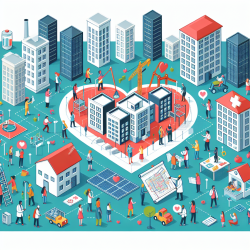Revolutionizing Endoscopic Training: The Power of Teleproctoring
The COVID-19 pandemic has significantly disrupted traditional training methods across various fields, including medical education. However, this challenge has also spurred innovation, particularly in the realm of remote learning. A recent study titled "Learning Process Effectiveness During the COVID-19 Pandemic: Teleproctoring Advanced Endoscopic Skills by Training Endoscopists in Endoscopic Sleeve Gastroplasty Procedure" provides compelling evidence of how teleproctoring can effectively enhance the training of advanced endoscopic skills.
Understanding Teleproctoring
Teleproctoring involves the use of technology to provide real-time, remote instruction and feedback to trainees during medical procedures. This method has been particularly useful during the pandemic, allowing for continued education and skill development despite restrictions on in-person interactions.
Key Findings from the Study
The study focused on training endoscopists in the endoscopic sleeve gastroplasty (ESG) procedure through a teleproctoring program. Here are some key findings:
- All procedures were safely completed with no serious adverse events.
- The average time for endoscopic procedures decreased significantly, indicating improved efficiency and skill acquisition.
- The learning curve demonstrated a large effect size, showcasing meaningful improvements in both procedural and suturing times.
Implications for Practitioners
For practitioners looking to enhance their skills, teleproctoring offers a viable alternative to traditional training methods. By leveraging technology, practitioners can receive expert guidance and feedback from anywhere in the world, reducing logistical barriers and costs associated with travel and in-person training.
Benefits of Teleproctoring
- Accessibility: Trainees can access expert instruction regardless of geographical location.
- Cost-Effectiveness: Reduces the need for travel and associated expenses.
- Flexibility: Allows for training to occur at the trainee's pace and schedule.
- Safety: Minimizes the risk of COVID-19 transmission by reducing in-person interactions.
Encouraging Further Research
While the study provides promising results, further research is encouraged to explore the long-term outcomes of teleproctoring in various medical procedures. Practitioners are urged to consider integrating teleproctoring into their training programs and to contribute to the growing body of research on its efficacy.
To read the original research paper, please follow this link: Learning Process Effectiveness During the COVID-19 Pandemic: Teleproctoring Advanced Endoscopic Skills by Training Endoscopists in Endoscopic Sleeve Gastroplasty Procedure.










